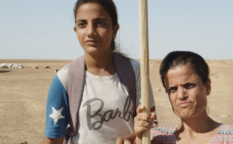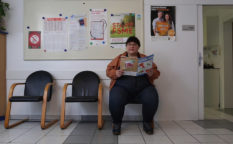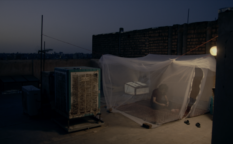Review: The Pageant (2020)
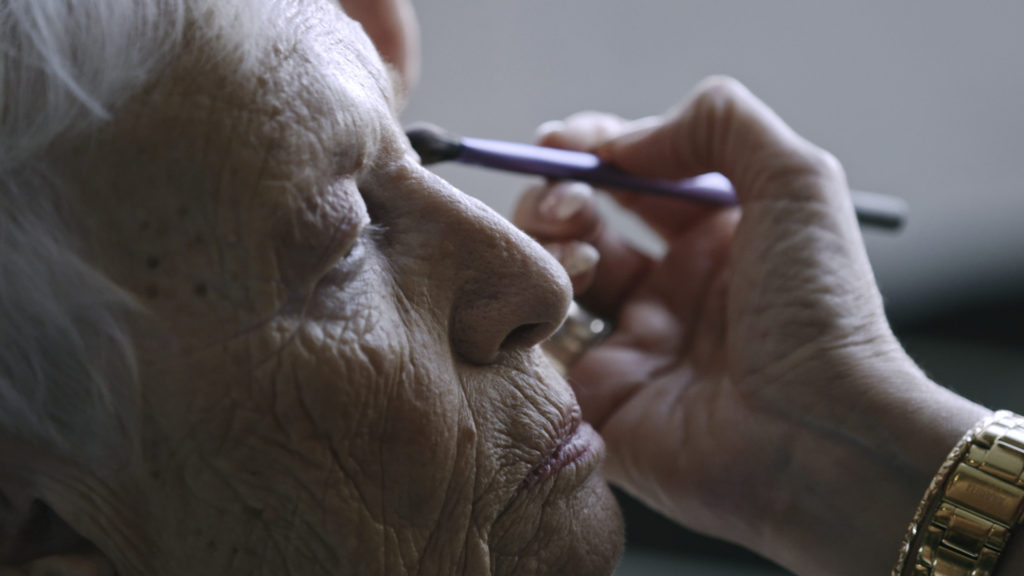
It is hard not to think of the cult Belgian documentary television series Strip-Tease when watching Eytan Ipeker’s documentary debut The Pageant, world-premiered at Visions du Réel. It uses a similar device: a fly-on-the-wall camera which seems to miss no detail, accompanied by no commentary at all, to let the enormity of the reality depicted to us emerge from the apparently banal scenario and speak for itself, unrestrained by an intrusive editorial voice. This effect is strongly helped, however, by a profoundly ironic editing work, in this case handled by the Jewish Turkish editor-turned-director himself. Ipeker’s approach could not be better suited to his film’s flabbergasting subject, as The Pageant follows the preparations for the 2016 edition of the Haifa-based beauty contest Miss Holocaust Survivor.
One of the main functions of the no-comment conceit, besides reinforcing the critical tone by presenting what unfolds before our eyes for the blatant and indescribable indecency that it is, is to spare the contestants. Whether these elderly women participate to raise money for their survivors’ retirement home, to engage in a group activity or even for the simple pleasure of getting dolled up is immaterial. All the more so given how the contestants are treated throughout the whole process: one of them even gets abruptly interrupted with no apology whatsoever whilst on stage, trying to formulate a message of peace, by the flashy arrival of the Prime Minister’s wife Sara Netanyahu. Really paying attention to these survivors without judging or questioning anything about them is paramount to the intentions of Ipeker’s documentary, as is not spelling out how grossly instrumentalised they are: it is cruel enough to see them stand confused, frazzled and ignored, at an event ostensibly conceived to honour them; treating them with the actual gentleness the pageant’s organisers utterly lack had to go without saying.
On the other hand, there is nothing ambivalent about the various narratives which are shown superimposing, even forcing themselves, onto the contestants’ stories. That horrendous tragedy is exploited for show here is in the name of the game, but the casual relentlessness with which the organisers milk the memory of the genocide that these old ladies have lived through is astounding. Not only do they push them to conjure up traumatic memories they would clearly rather leave behind, but they also appear concerned that these great-grandmothers are disappointingly normal after all, never mind that ending up living a ‘regular’ life might actually have been a lifelong battle for them. Judging them ‘not very impressive’, to be more specific, the organisers make sure their stories are duly adorned with extra elements which will make them ‘more meaningful’.
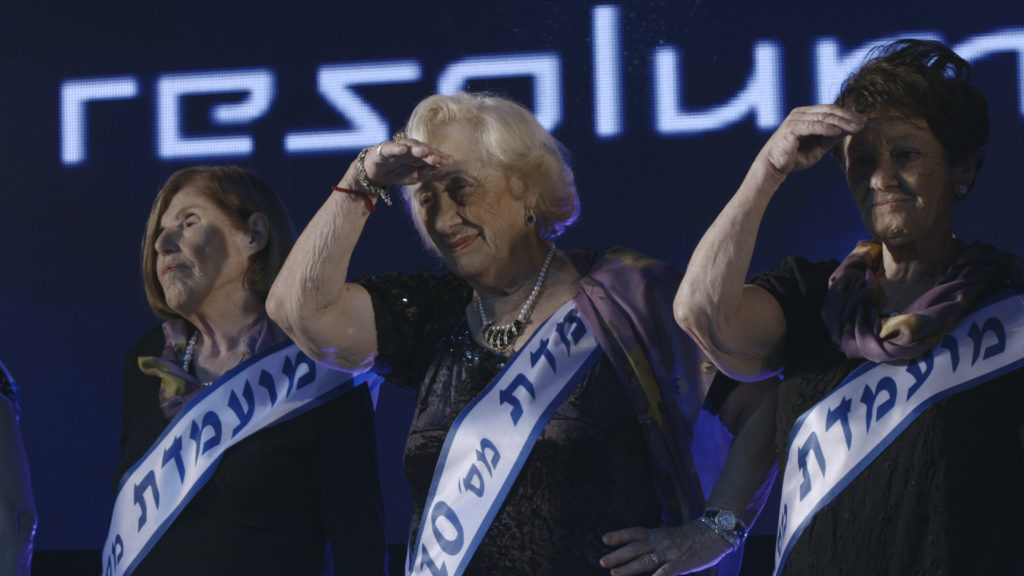
The use of this word is supremely ironic, for if one thing becomes increasingly striking throughout the film, it is not so much the extremities to which the pageant people take their carelessness as the matter-of-factness with which they do it, pronouncing the magic words ‘Holocaust survivors’ to get a store discount or suggesting that one former contestant who had been raped by Nazis as a child would have ‘deserved a win’ which is beyond shameless. It is hard to grasp how placid these people appear on the surface and, by doing so, render their own unconscionable placidity shockingly banal, bypassing any deeper ethical consideration whilst drawing on deep collective trauma. And yet, the rehearsal coordinator clearly has no hint a of second thought when she makes the concentration camp survivors line up and assigns them numbers.
But then again, the context is a ‘beauty’ pageant which ended up called that way because the questionable name ‘just stuck’, justified a posteriori by the pretence that it is filled with the deeper meaning of ‘inner beauty’. The vapidity of it all is certainly even more shocking for all these pretences, and it embraces the part of the Israeli society the pageant is supposed to represent including the nationalist party, which is never too far. And thus, as the ceremony ends and the attendees glorify the State created to become a home to all those who were wronged and uprooted from their original home countries, and as the thought come to mind that this very State should be supporting the contestants’ retirement home and not the contrary, the sweet old ladies are pushed to the side (to the sound of “Pretty Woman”, of all songs), left feeling out of place. Suddenly, the melancholic word ‘home’ takes on extra significance, while the venue’s staff quickly clears the room, making sure it’s nice and empty.
Year: 2020
Runtime: 83′
Countries: Turkey, France, Israel, Germany
Languages: Hebrew, English, Russian
Directed by: Eytan Ipeker
Cinematography by: Itai Marom
Sound by: Emmanuel Soland
Editing by: Eytan Ipeker
Produced by: Yoel Meranda (Kamara – Turkey), Carine Chichkowsky (Survivance – France), Eitan Mansuri and Jonathan Doweck (Spiro Films – Israel), Kristina Konrad (weltfilm gmbh)


